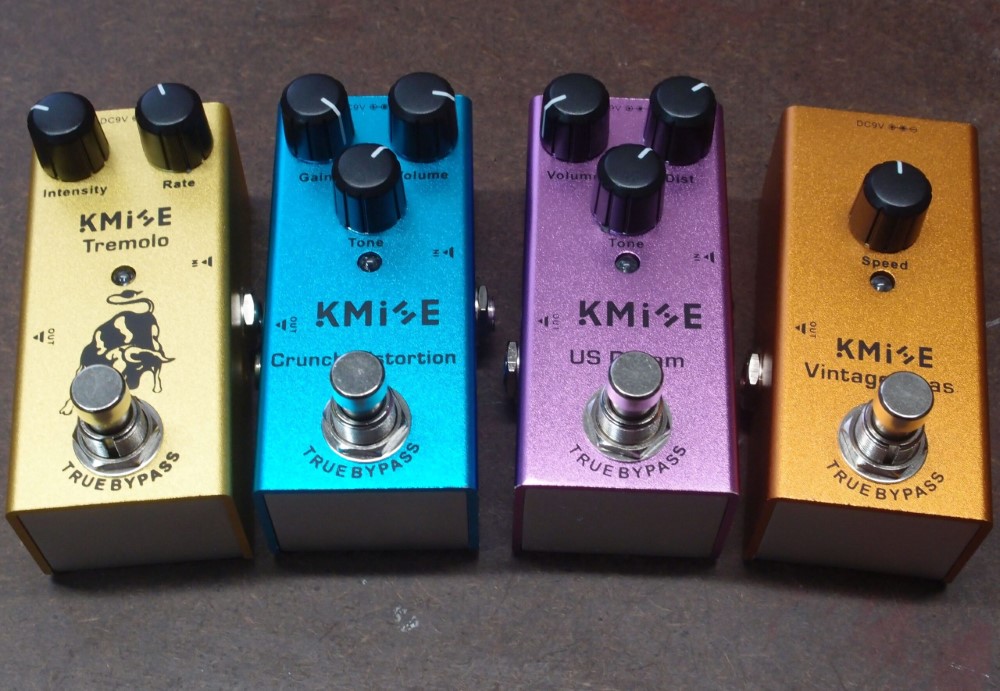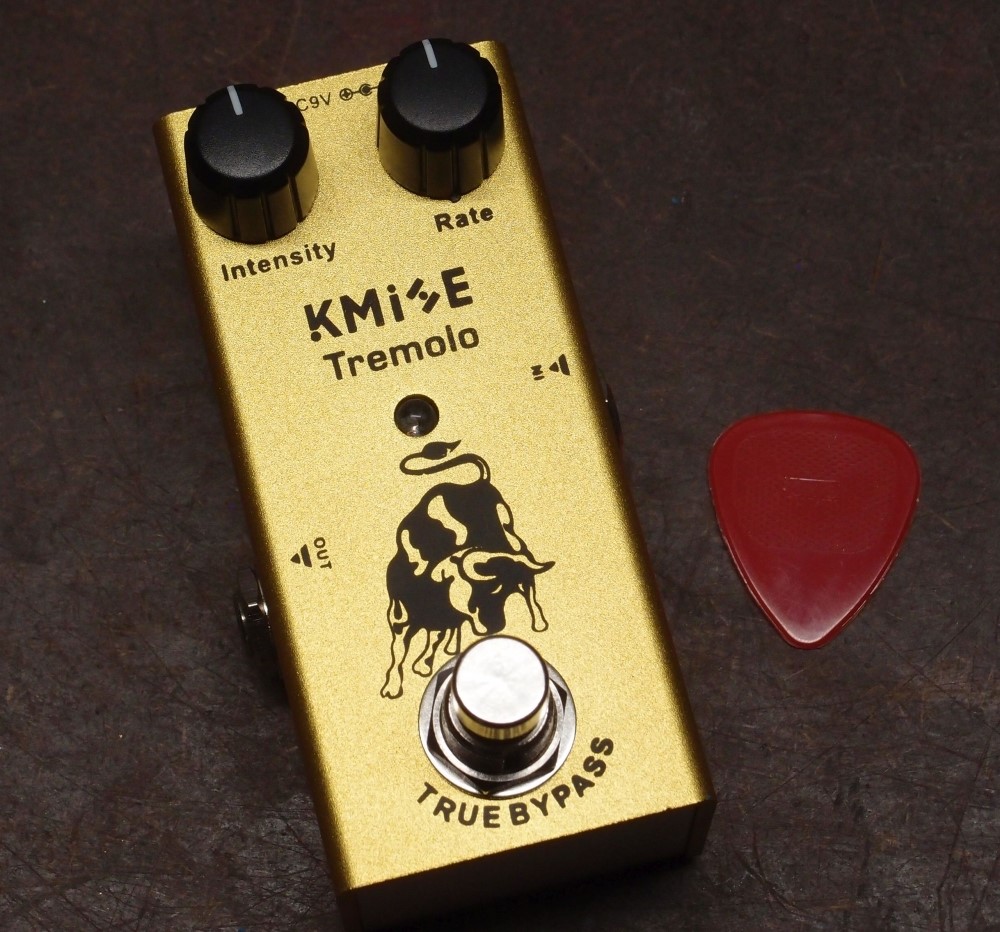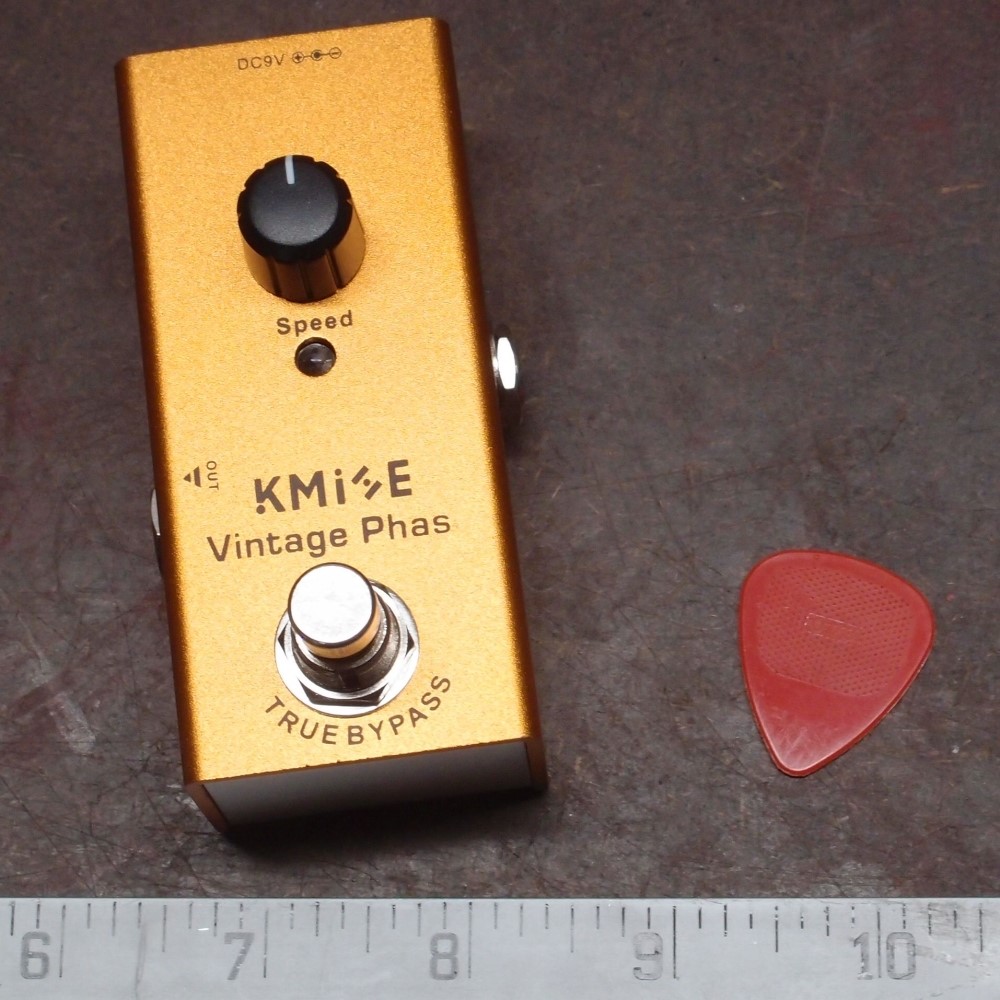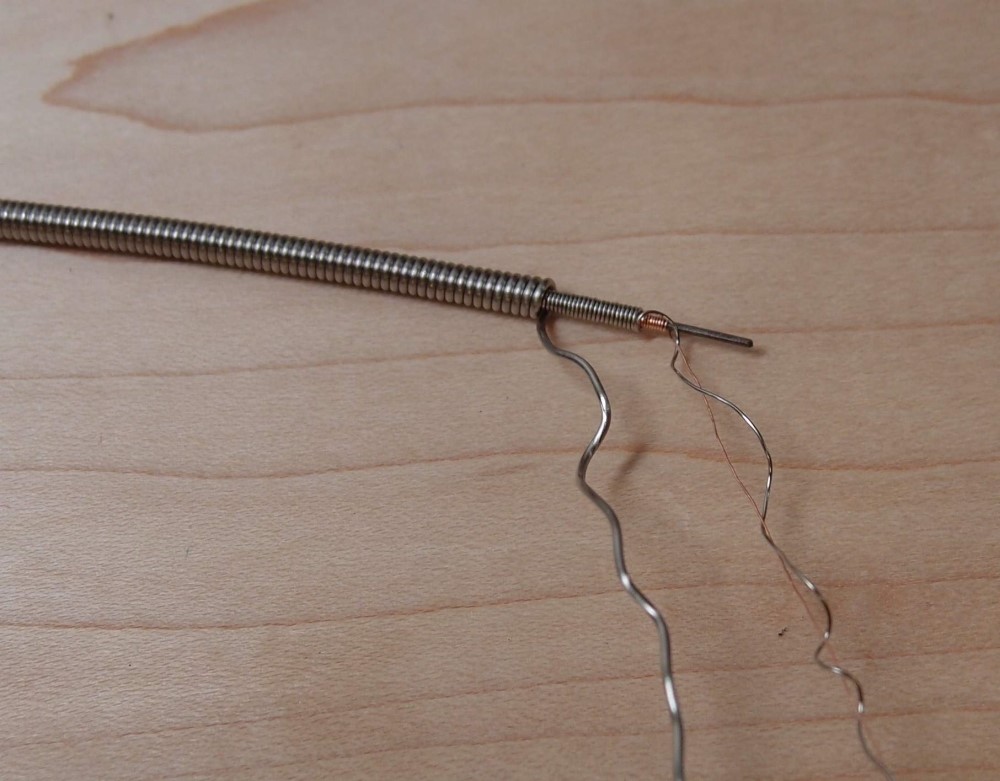February 23, 2020
KMise "Crunch" Distortion Pedal
February 23, 2020

First, I am bound to state that I received this pedal at no cost for review. Having gotten that out of the way …
This is pedal #4 since I started reviewing these for KMise, and I must say, I am very pleased with all of them. I started with the tremolo, then the phase and the "US Dream" overdrive, and now this "Crunch" distortion. All these pedals are well built, great-sounding, attractive, quiet, compact, and true bypass.
I don't split hairs over distortion - after all, it is supposed to be noise, isn't it? While the US Dream does a nice bluesy tube overdrive kind of sound, the Crunch is a lot more raucous, more 'metal'. I have to admit that's not really my thing, but it does what it does well. And it does it for just twenty bucks !!! You can spend a fortune on guitar pedals, and in blind testing, I doubt anyone could tell the difference between this incredible bargain pedal and something else. I find other types of effects much more interesting, and I just can't expound more over variations of noise.
Some caveats: under the knobs, the pots on these pedals have plastic shafts that may or may not hold up as well as metal. You'd think metal would hold up better, but I don't plan to ever test that, just be a little more careful when you stomp. The knobs themselves are good-sized and easy to work. The mechanical switch is solid with a nice action.
Inside there are two stacked circuit boards. The upper one is the effect itself, and the lower board is a standard power and I/O, as well as the switch mounting. This is part of the cost savings, Danelectro used the same kind of split design in their inexpensive mini pedals, which, like these little KMise pedals, are much better than they ought to be.
I think the rest of the cost savings is the atypical case, which is two C-shaped aluminum pieces that nest in each other. The upper part is an extrusion, and the lower part is a simple stamping. Both processes are cheaper than the usual cast case and bottom plate, but the result is just as strong and quite attractively anodized. This is much better than the little Danelectros, which were all-plastic.
One thing I almost forgot - these pedals do not take batteries, they require an external 9v power supply. This doesn't bother me at all, I have seen too many batteries leak and ruin things. For a 9v battery, this is basically guaranteed to happen, just give it time.
One flaw on this pedal: the labels for "Gain" and "Volume" appear to be switched. The controls themselves are arranged the same as on the US Dream pedal, where they are labeled correctly. Once you figure it out, it's not really a problem, hopefully, the factory will fix it. I re-labeled mine "V" and "D" with a Sharpie pen.
So there you go - another great bargain effect pedal from KMise. I know I didn't say much about the tone except that it sounds fine to me - get one and decide for yourself. It's not like you're risking a lot of $$$ on it !!! For the price, you're not going to find better. I don't understand how they can build these, ship them to the other side of the planet, and sell them on Amazon at such prices, and still make a profit. Try one yourself !!!
Buy on Amazon:
https://amazon.com/Distortion-Electric-Guitar-Single-Bypass/dp/B07Y87BHJQ
They even managed to spell their own name wrong !!! Nice pedals, but the folks at "Kmsie" need a spellchecker !!!





